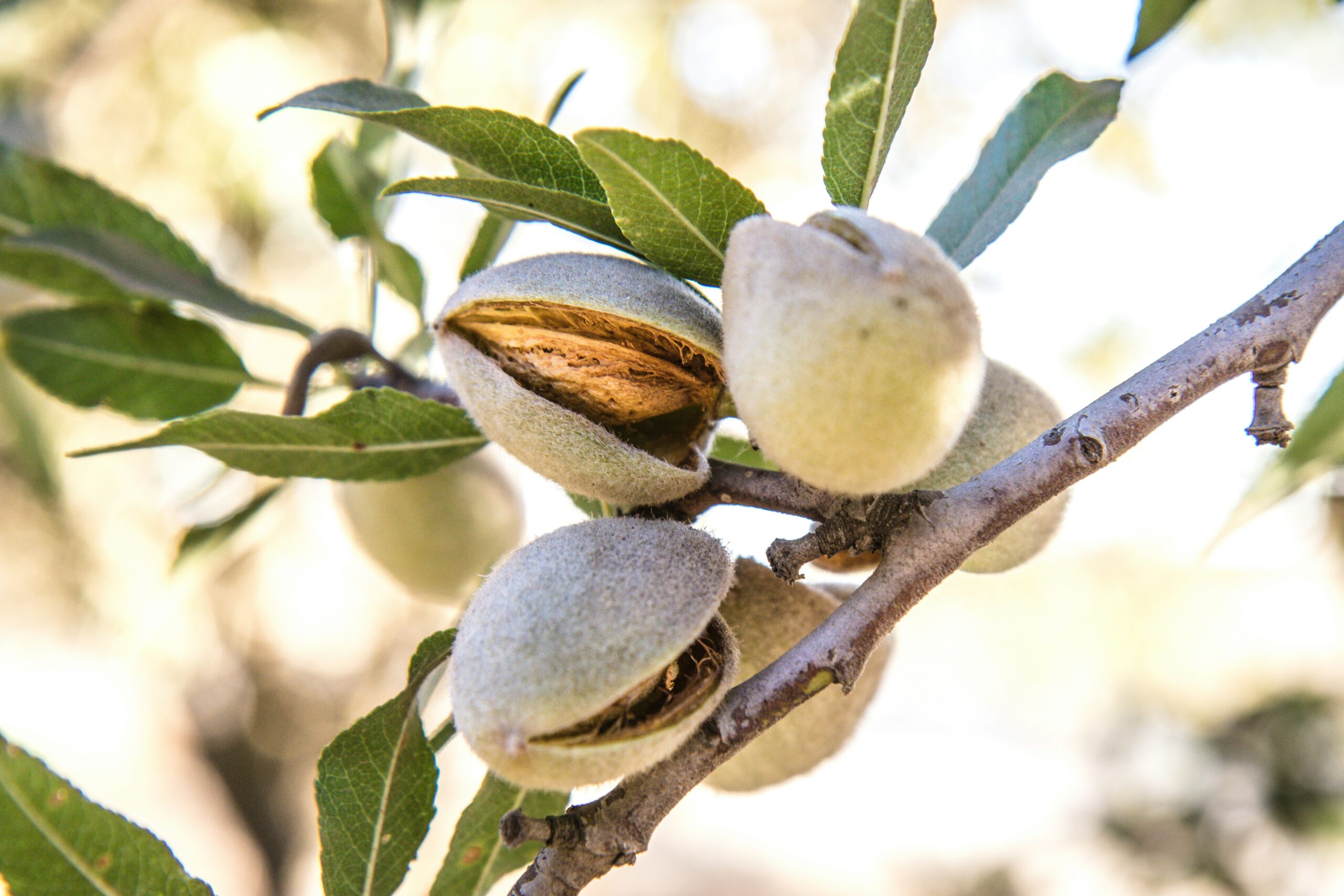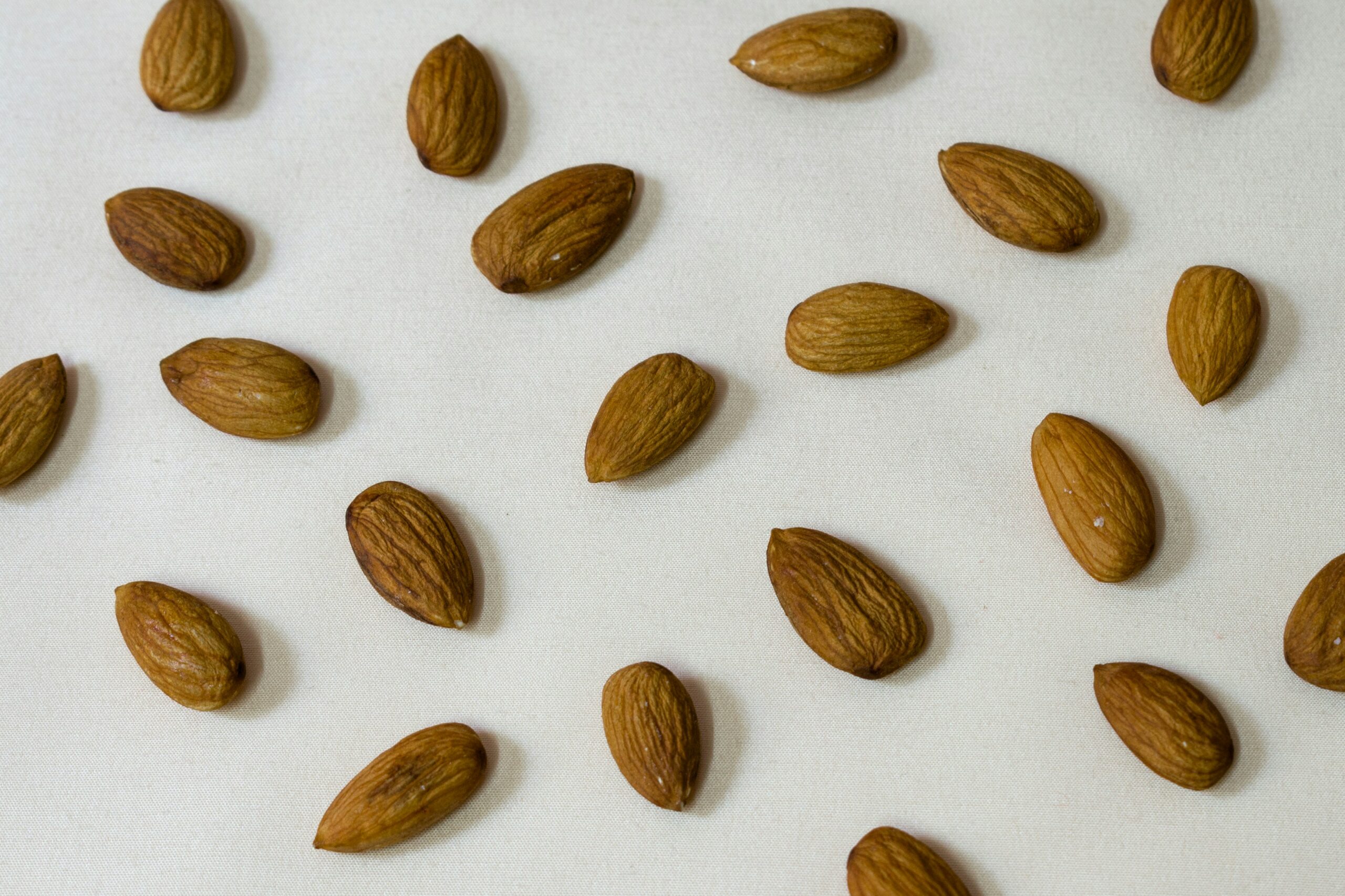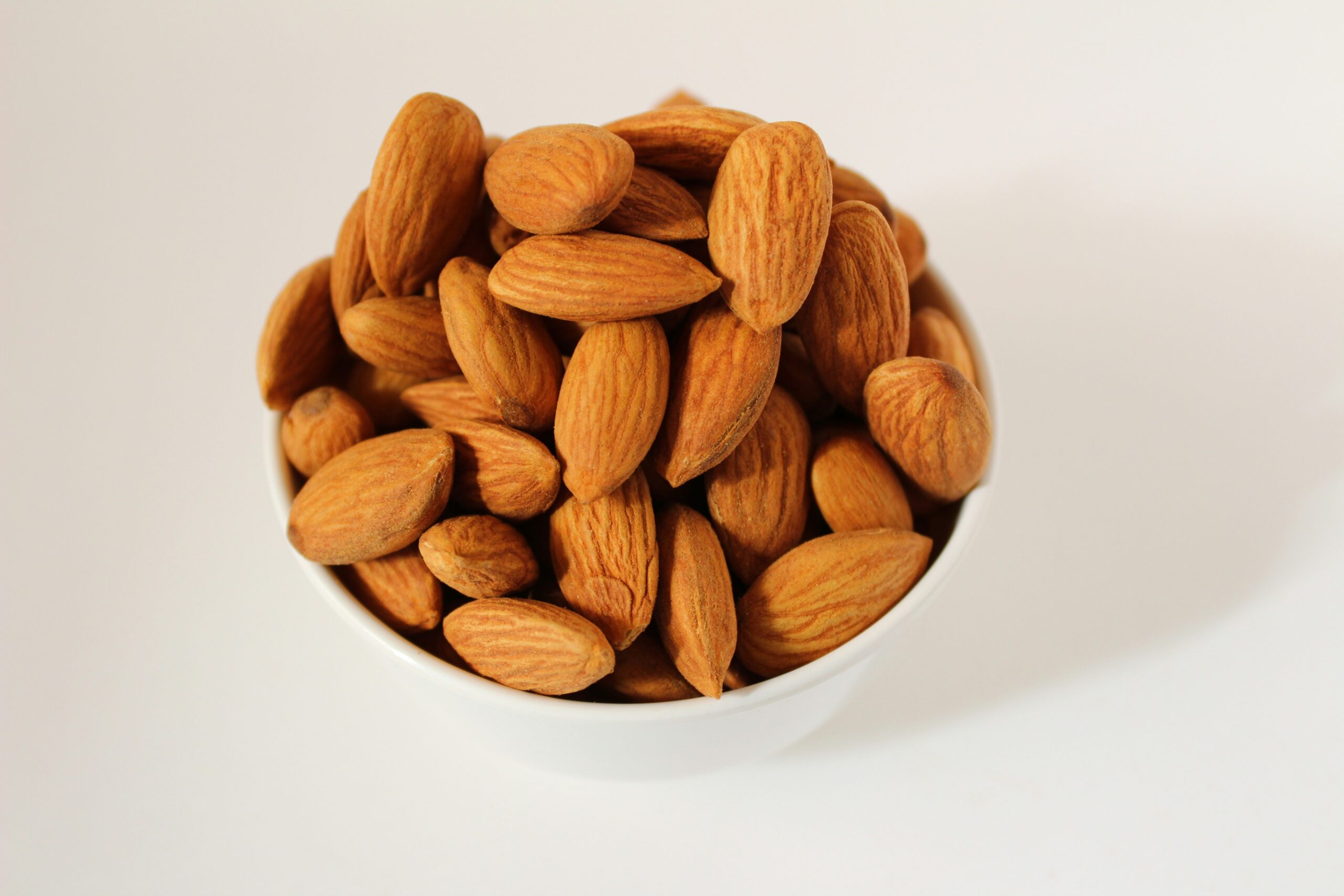Almonds are oily, consumable seeds of the tree. On the common almond tree, they ripen in the form of oblong fruits, which carry a skin and contain the seeds that we know as almonds. Almond trees grow all around the world. These seeds can favor the improvement of the human organism in various possible ways.
This is due to their composition, which they can boast about eating. From a nutritional point of view, almonds are classified as nuts. It is worth mentioning that they are often addressed in the category of superfoods.

They are products responsible for a huge part of what is most important in providing beneficial ingredients and nutritional values. As a result, almonds can help keep biological functions in balance and reduce the risk of various diseases and complications. Choose snacks with this ingredient. It is also worth checking if your almonds have added something unhealthy, such as salt or sugar. The most common contraindications for eating almonds and other seeds are food allergies, which can usually occur with these products. Make sure you find out the disadvantages and advantages of almonds.
Rosaceae![]() is the almond’s family plant. Almond seeds are one of the health foods known for their properties. Thanks to their health benefits, nuts used in healthy foods are becoming increasingly popular. Various studies have linked almonds to therapeutic and protective effects. Find out about the special benefits of sweet almonds and whether they are worth including in your diet.
is the almond’s family plant. Almond seeds are one of the health foods known for their properties. Thanks to their health benefits, nuts used in healthy foods are becoming increasingly popular. Various studies have linked almonds to therapeutic and protective effects. Find out about the special benefits of sweet almonds and whether they are worth including in your diet.
Almonds can have an antioxidant effect on you. It is true because these seeds are high in vitamin E![]() . The thing is that almonds have a large number of constituents, the majority of which are located in the skin of the seeds. Flavonols and phenolic acids are the additional antioxidants located in almonds. In fact, by providing your body with all the abovementioned ingredients in your food, you can make it more resistant to all sorts of diseases and free radicals.
. The thing is that almonds have a large number of constituents, the majority of which are located in the skin of the seeds. Flavonols and phenolic acids are the additional antioxidants located in almonds. In fact, by providing your body with all the abovementioned ingredients in your food, you can make it more resistant to all sorts of diseases and free radicals.
Almonds in the recent past were noted to have some anti-inflammatory potential in patients who consumed varying portions of the food. The patients who consumed the food with a high content of almonds on their diet had much better outcomes. Most almond components appear to work best to lower inflammatory markers. The food has anti-inflammatory effects through the minerals and phytochemicals almond seeds contain. You may now have in mind that consuming almonds protects against infections and inflammation.

Unfortunately, it has to be emphasized that there is no proof that various nuts and seeds are protective against cancer. We can only cherish some recommendations made due to some studies. Previously, scientists pointed out that frequent nut consumption could increase protection against prostate cancer![]() . The new research provides additional data showing that eating almonds and other nuts might positively impact the protection against cancer.
. The new research provides additional data showing that eating almonds and other nuts might positively impact the protection against cancer.
Another benefit of almonds is their effect on lipid levels. It is extremely important to control blood lipid levels because inappropriate cholesterol levels can lead to a number of diseases. Regarding the study, it is possible to observe the benefit of including almonds in one’s ration and its effect on decreasing total cholesterol in people with mild hypercholesterolemia![]() . The same effect may also be applied to healthy people who want to stabilize their lipid results. Almonds contain unsaturated fatty acids that are responsible for that.
. The same effect may also be applied to healthy people who want to stabilize their lipid results. Almonds contain unsaturated fatty acids that are responsible for that.
Another aspect that should be emphasized is the regular consumption of almonds and their positive effects as modulators. Among the changes noted as a result of patients with diabetes consuming almonds is the sense of satiety after food became more distinct. This was ensured by the components of the seeds that normalize blood sugar levels. The patient is protected from sharp surges in insulin levels. Moreover, almonds are beneficial and contain the necessary substances to maintain physical health. They can also help regulate diabetes.

On the first thought, for people with excess weight, it seems that high-calorie nuts are contraindicated. However, the results of the research amaze us; it turns out that eating almonds leads to less weight gain and overall health disease. Other reasons for weight gain, such as concomitant diseases and physical activity, may exist. The data suggested that almonds were associated with greater weight loss. Probably, this is because almonds cause postprandial satiety![]() . If you eat the correct portion of almonds, you will not have an overabundance of calories, but you will get a feeling of satiety. This will keep you from snacking on more calories.
. If you eat the correct portion of almonds, you will not have an overabundance of calories, but you will get a feeling of satiety. This will keep you from snacking on more calories.
The effect of almonds on the cardiovascular system is also an interesting advantage. Nuts can reduce the probability that a person might suffer from cardiovascular disease. This is especially true for people who are at risk. Nevertheless, almonds can help the patient only when they follow a low-fat nutritional regimen. A large proportion of harmful fats is closely related to cardiovascular disease. If you do not abandon bad eating manners, your health will not change much with the regular use of almonds. According to experts, people at risk for heart problems must include almonds in their prevention.
Our brains should eat nuts. The brain needs various nutrients to work well. First of all, thanks to B vitamins and magnesium, almonds have a beneficial effect on the nervous system and the brain. For this reason, these seeds are recommended for people exposed to increased and mental stress. Organic nut improves memory, attention, and mood. Consequently, you can protect your nervous system if you eat almonds.

This category of nuts is an essential type of product to consume not just before doing mental work but also any physical activity. There are chemicals in the seeds that influence the body’s metabolic and power systems. Many articles about understanding the muscle recovery process prove that the effect will undoubtedly be crucial after consuming almonds. These excellent nuts will help your muscles cease being stiff after intensive labor.
After you have already read about all the fantastic benefits of tree nuts, you might be interested in what exactly gives almonds such a health power. Almonds are considered relatively healthy snacks if we consume them in reasonable amounts. First of all, our body obtains a large number of such macronutrients as protein and dietary fiber.
On the other hand, we can also find some carbohydrates and a significant amount of fats. These nuts are also high in terms of calories, and fats make them calorie-dense. However, these fats are healthy and good for us. Note that 100 g of almond contains 578 kcal![]() . In addition to the macronutrients mentioned previously, we can also identify other compounds and elements.
. In addition to the macronutrients mentioned previously, we can also identify other compounds and elements.
The almond seeds contain a broad range of vitamins. For example, they provide valuable vitamin A and almost all B vitamins, which are even more essential for human health. The contained pantothenic acid, or vitamin B5, is necessary for health. Deficiencies of this component might result in various diseases. At the same time, pregnant women should not forget to obtain folic acid, which is also a B vitamin. It can be met in almonds. The reproduction of the baby takes care of folic acid intake by the mother-to-be. In addition, if you consume almonds, you will also obtain vitamin E. It is a great deal of health!

Besides health vitamins, almonds are full of minerals. This nut is a concentrated source of calcium. Therefore, people who do not like dairy products can provide this mineral with nuts. Almonds are a good source of iron, but calcium can slow its absorption. However, the seeds are good for magnesium deficiency, and they provide it. Besides, you will find phosphorus and potassium in the list of almond ingredients, and the seeds will help provide your body with zinc and selenium. Why are there so many elements in these little seeds, anyway?
Polyphenols have been discovered in almonds. This complex word doesn’t mean anything bad. On the contrary, polyphenols are very good for the human body. These are bioactive compounds that have exceptional properties. At the same time, they can effectively protect you from various diseases. Nutritionists have long advised us to eat food rich in polyphenols. You will find these substances precisely in almonds.
Phytosterols is another complex word covering something useful. You will also find that wonderful component in almonds. They are the ones that give the seeds the ability to lower the amount of cholesterol in your body. It is the phytosterols that are responsible for their anticancer effect. You may eat such foods from time to time.

The seeds that are being mentioned are a high source of healthy fats. Unsaturated fatty acids should be consumed on a daily a basis, as they have a positive impact on the whole body, as far as the immune, nervous and blood circulation systems are concerned. Almonds and other nuts contain quite a large quantity of the healthy fats. Why not change the unhealthy snacks to a delightful, oily but healthy, almonds.
There are many benefits of foods rich in amino acids. They are building blocks for proteins and help keep the body running as it should. Almonds belong to this class. They can provide you with lots of benefits if you eat them. After all, they are rich in many components, and we can find a lot of amino acids in the seeds. At the same time, you should not consume too many nuts, as this can be bad for your health.
Eating almonds in moderation is safe for healthy patients. This applies to those patients and people to whom almonds and other nuts do not cause food allergies. Almonds, like nuts, are also not harmful to children, but it is best to give children almonds in crushed form because it is difficult for them. Pregnant women can also eat this type of nut; in contrast, many experts recommend almonds specifically to this group of patients, as almonds contain folic acid. But I agree that if in doubt, it is better to turn to your doctor about any new type of product that you put in your diet.

In the context of whether eating almonds is safe, it is noteworthy that many discussions focus on the question of allergens. Food allergies to nuts, in general, are prevalent. Consequently, should you start feeling certain symptoms and reactions within yourself immediately after eating almonds, you better avoid repeated consumption of this particular nut.
This is because an allergy to nuts can be accompanied by rash, nausea, or shortness of breath, but it can also cause dangerous conditions. In particular, high doses of allergens can stimulate anaphylaxis![]() , an acute life-threatening allergic pathology. This way, it is worth looking at the possible dangers to one’s health that can come from eating almonds if you want to acquire them for your ration.
, an acute life-threatening allergic pathology. This way, it is worth looking at the possible dangers to one’s health that can come from eating almonds if you want to acquire them for your ration.
Another issue concerning almonds is all existing kinds of gastrointestinal disorders. Unfortunately, these are exactly the kind of symptoms a patient may get when he or she eats almonds too much. A surplus of the seeds may be interpreted as an overdose of fiber. The outcome is that nausea, bloating, and abdominal pain can be experienced. Do not, therefore, harm yourself with almonds.
One more danger of almonds is their possible intoxication. Aflatoxins![]() are toxic substances produced by some kinds of fungi. During the growth and collecting phases of almonds, microfungi can develop. Unfortunately, there have been several such cases in different countries, so it is important to be aware of it, especially, if the ingestion of almonds caused poor health. Toxins can severely damage the human organism if they are in big amounts. Furthermore, they are carcinogenic.
are toxic substances produced by some kinds of fungi. During the growth and collecting phases of almonds, microfungi can develop. Unfortunately, there have been several such cases in different countries, so it is important to be aware of it, especially, if the ingestion of almonds caused poor health. Toxins can severely damage the human organism if they are in big amounts. Furthermore, they are carcinogenic.
Almonds are oily, edible seeds of the tree. Almond trees grow all over the world. These seeds offer you many health benefits and valuable properties. A person consuming almonds may be sure that it may assist in retaining biological processes in balance and reduce many risks of ailments and complications, as various studies show almonds are connected to therapeutic and protective effects.
A serving of almonds does provide the body with plenty of macronutrients, in which protein and dietary fiber are present the most highly in a great quantity. In return, however, we may also locate several carbohydrates and quite a dose of fats. There are also hundreds of other beneficial micronutrients contained in the seeds.
Ingesting almonds is also safe for all people with no health issues who still eat them in moderate measure. Nevertheless, there are also some risks associated with this product. These are the consumption of almonds in excess, allergies, and contamination with toxins – you should be aware of these facts if you want to take advantage of almonds.